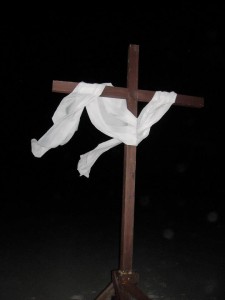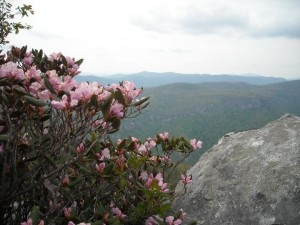 All over the world, in every time zone, Christ-followers will gather on Easter Sunday with joy to worship our Risen Saviour. We will celebrate! Before we get to Sunday, though, we have to walk through the valley of the shadow of death. But it’s only temporary.
All over the world, in every time zone, Christ-followers will gather on Easter Sunday with joy to worship our Risen Saviour. We will celebrate! Before we get to Sunday, though, we have to walk through the valley of the shadow of death. But it’s only temporary.
Some will gather in secret. In countries where they are persecuted. Some will worship alone. In prison cells. Or hospital rooms. But nobody and no thing can stop us from worshiping in our hearts.
Even if we don’t or can’t shout for joy, silence will not triumph. Death and hell don’t have the final word. When Jesus triumphantly entered Jerusalem on Palm Sunday, he said, “If they keep quiet, the stones will cry out.” (Luke 19:40)
The apostle Paul says that all creation waits eagerly, groaning in frustration for the day when it will be set free. Liberated for glory. Unleashed to its full beauty. (Romans 8:19-22)
 Isaiah prophesies that, someday, the mountains and hills will burst into song and the trees of the field will clap their hands. I can see that happening in my mind. One of my trips out of Albania, back in the days of anarchy before the Kosovo War, I looked down from my plane onto fields littered with broken glass, dirt roads filled with pot holes, and buildings destroyed over years of oppression. We climbed higher. From that vantage point, all I saw were the magnificent green mountains and the blue Adriatic Sea. I could easily believe that not just people, but creation, had been pushed down in bondage. My heart sang with hope — certain hope — for the day when all will be freed. The day when the mountains will sing and the trees will applaud. And people will be set free.
Isaiah prophesies that, someday, the mountains and hills will burst into song and the trees of the field will clap their hands. I can see that happening in my mind. One of my trips out of Albania, back in the days of anarchy before the Kosovo War, I looked down from my plane onto fields littered with broken glass, dirt roads filled with pot holes, and buildings destroyed over years of oppression. We climbed higher. From that vantage point, all I saw were the magnificent green mountains and the blue Adriatic Sea. I could easily believe that not just people, but creation, had been pushed down in bondage. My heart sang with hope — certain hope — for the day when all will be freed. The day when the mountains will sing and the trees will applaud. And people will be set free.
I lived in Romania during the first Easter people were free to celebrate in 45 years. The evening before, my roommate and I went to a monastery outside of Bucharest for a midnight mass. Here’s how I described it in We Wait You:
We joined a huge throng, walking up a hill and past a lake and ancient graveyard. The round church was adorned with beautiful frescoes on the outside walls. The long-bearded priests carried bells and chanted soulful music. They glided by, wearing stiff hats and black cassocks that cascaded onto the ground. The sky twinkled with stars, illuminating the tiny buds ready to burst out of their wintry graves. We all held small white tapers, lit from the priest’s large candle at midnight. The final words “Jesus rose!” and a bell’s deep chime echoed in the stillness. The night was sacred. Joy replaced despair.
We stayed up all that night with friends, breaking hard-boiled eggs — dyed solid red to represent Jesus’ blood — on each other’s foreheads, waiting. Watching for the sun to come up. When it did, we gathered into an overflowing Baptist church for one of the most joyous services of my life.
The next Easter, the people once again celebrated freely the fact that Jesus had risen from the dead. They also cheered for someone else who’d come back to life. Their beloved King Mihai returned to his homeland for the first time since he’d been exiled when the Communists took over. I watched from the balcony to see multitudes of people line the streets for his procession, throwing flowers and confetti, blowing their horns and shouting. Cheering.
Just wait till King Jesus returns! People, mountains and trees will rejoice like there’s never been rejoicing. Even the stones . . .